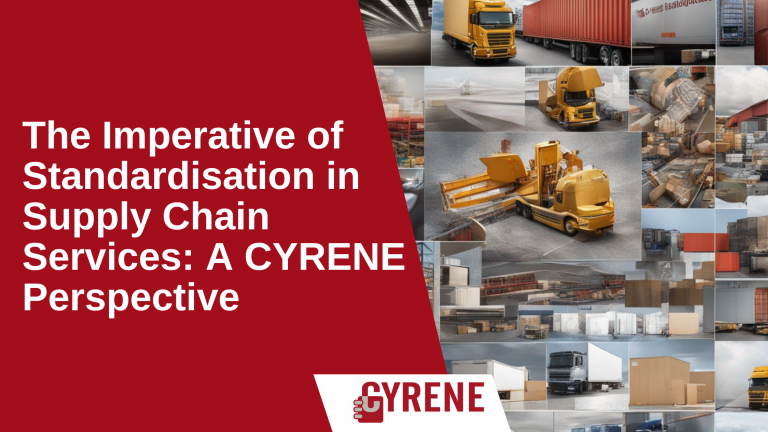In the intricate world of global commerce, the role of Supply Chain Services (SCS) is pivotal. As the backbone of international trade, SCS ensure the smooth flow of goods, information, and finances from the point of origin to the point of consumption. However, the complexity and diversity of these services often lead to inefficiencies and vulnerabilities, particularly in the face of evolving cyber threats. This is where the importance of standardisation comes into play, a concept that is at the heart of the CYRENE project.
Standardisation: The Key to Efficiency and Security
Standardisation in SCS refers to the process of developing and implementing technical standards that apply universally across different stages of the supply chain. These standards facilitate interoperability, improve efficiency, and enhance security by providing a common framework for all stakeholders to adhere to.
From a practical standpoint, standardisation simplifies complex processes, reduces errors, and promotes consistency. It allows for seamless integration of various supply chain components, leading to improved operational efficiency. Moreover, it fosters transparency and accountability, making it easier to track and trace goods, identify bottlenecks, and mitigate risks.
The Cybersecurity Imperative
In the digital age, the need for standardisation becomes even more critical. As supply chains become increasingly digitised, they also become more vulnerable to cyber threats. Standardised cybersecurity measures can help protect supply chains from these threats, ensuring the integrity, confidentiality, and availability of digital assets.
At CYRENE, we recognise the importance of cybersecurity in SCS. We propose a cybersecurity scheme, a risk and conformity assessment methodology, and a tool to realise the SCS certification process. These initiatives aim to provide a standardised approach to cybersecurity, ensuring that all supply chain components are adequately protected against potential threats.
The Role of CYRENE
CYRENE is at the forefront of efforts to standardise SCS, particularly in the realm of cybersecurity. Our project focuses on developing innovative solutions that can help secure supply chains against a wide range of threats. We believe that by promoting standardisation, we can help build more resilient, efficient, and secure supply chains.
Our work aligns with the broader European agenda for digital security. The proposed Digital Services Act, Digital Markets Act, and the European Chips Act all emphasise the need for standardisation in ensuring the resilience of the supply chain. CYRENE contributes to the implementation of these initiatives, providing practical tools and methodologies that can be used to enhance the security of SCS.
Conclusion
In conclusion, standardisation is crucial for the efficient and secure operation of Supply Chain Services. By adopting standardised processes and cybersecurity measures, we can build more resilient supply chains that can withstand the challenges of the digital age. At CYRENE, we are committed to promoting standardisation in SCS, contributing to a safer and more secure global digital market.
References
- European Commission. (2020). Digital Services Act: Ensuring a safe and accountable online environment. European Commission.
- European Commission. (2020). Digital Markets Act: Ensuring fair and open digital markets. European Commission.
- European Commission. (2020). European Chips Act. European Commission.
Reach out to us and share your views by using our contact form or following our social media accounts on Twitter and LinkedIn.
Don’t forget to subscribe to our Newsletter for regular updates!
This blog is signed by: Spiros Fotis Jr of the ZELUS team
KEY FACTS
Project Coordinator: Sofoklis Efremidis
Institution: Maggioli SPA
Email: info{at}cyrene.eu
Start: 1-10-2020
Duration: 36 months
Participating organisations: 14
Number of countries: 10
FUNDING
 This project has received funding from the European Union’s Horizon 2020 Research and Innovation program under grant agreement No 952690. The website reflects only the view of the author(s) and the Commission is not responsible for any use that may be made of the information it contains.
This project has received funding from the European Union’s Horizon 2020 Research and Innovation program under grant agreement No 952690. The website reflects only the view of the author(s) and the Commission is not responsible for any use that may be made of the information it contains.


